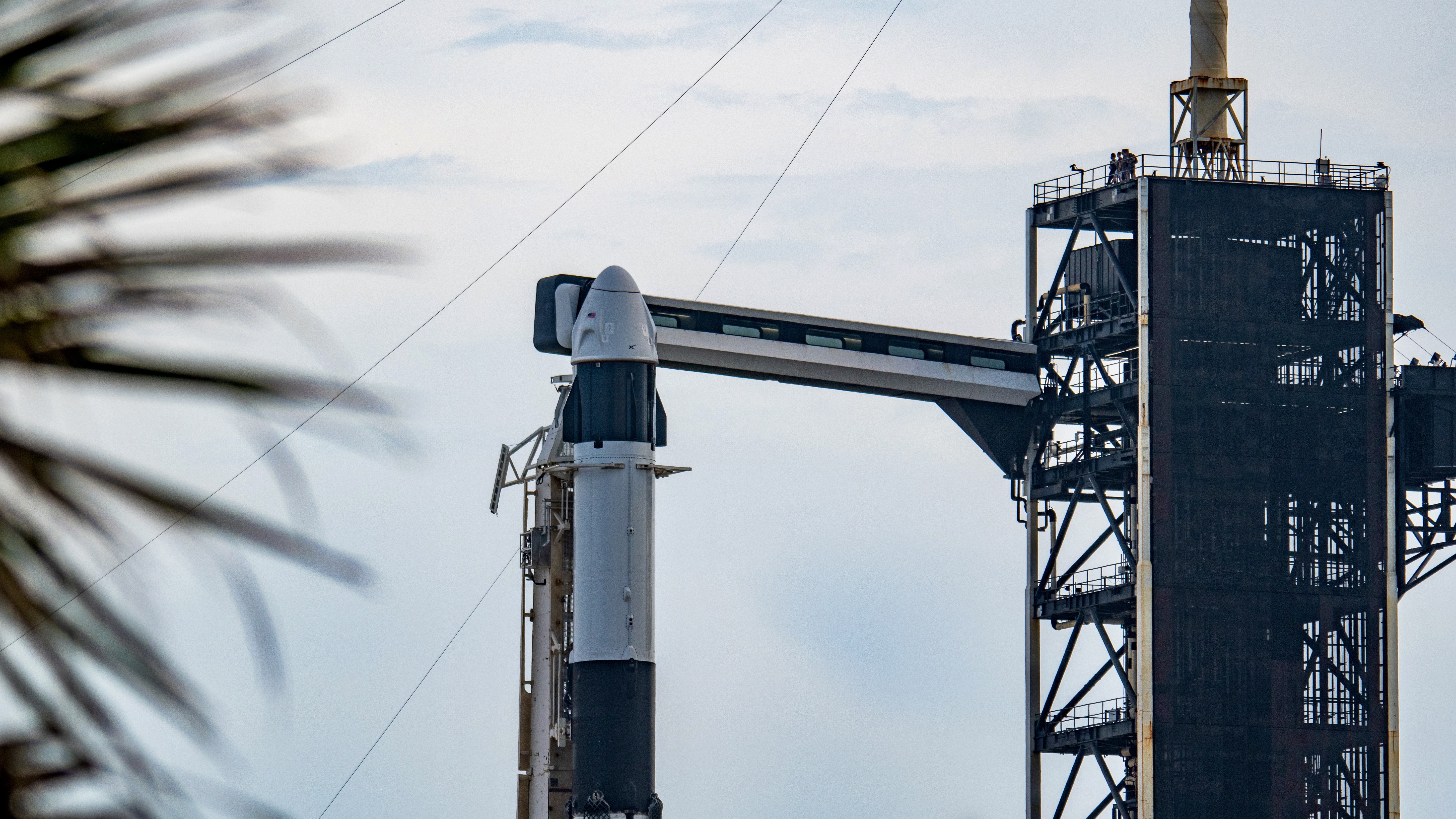Axiom House’s subsequent astronaut launch is again on the board, at the very least for now.
That mission, Ax-4, is Axiom’s fourth crewed flight to the International Space Station (ISS). It was slated to launch atop a SpaceX Falcon 9 rocket on June 11, however a liquid oxygen leak found within the booster delayed things by a day. That was adopted by the detection of one other leak, however this time at Ax-4’s orbital vacation spot.
Cosmonauts aboard the ISS just lately noticed a “new stress signature” in Zvezda, the Russian service module on the aftmost finish of the area station. Zvezda has been leaky for some time, however this variation in stress prompted one other delay within the Ax-4 launch out of an abundance of warning. That delay, which NASA and Axiom introduced on June 12, was indefinite; no new goal date was recognized.
Zvezda first sprang a leak in 2019, and the module has been managed periodically with stress checks and maintained with no matter is the area equal of Flex Tape. Now, it appears the suitable repairs have been effectuated, and NASA’s fear in regards to the potential threat to incoming crew has subsided sufficient for the company and Axiom to announce a brand new tentative launch date — this Thursday (June 19).
“Following the most-recent restore, stress within the switch tunnel has been steady. Beforehand, stress on this space would have dropped. This might point out the small leaks have been sealed,” NASA wrote in a June 14 update.
Nonetheless, the area company is not taking the preliminary outcomes as definitive.
“Groups are additionally contemplating the steady stress may very well be the results of a small quantity of air flowing into the switch tunnel throughout the hatch seal from the primary a part of area station,” officers wrote within the replace. “By altering stress within the switch tunnel and monitoring over time, groups are evaluating the situation of the switch tunnel and the hatch seal between the area station and the again of Zvezda.”
The fixes to the leaky Falcon 9 first stage, alternatively, are extra definitive. That booster, designated B1094, is without doubt one of the newer ones in SpaceX’s fleet, with just one earlier launch below its belt. The rocket stage supported the Starlink 12-10 mission on the finish of April, and apparently confirmed indicators of a leak throughout that flight as properly.
SpaceX’s vice chairman of construct and flight reliability, Invoice Gerstenmaier, informed reporters throughout a June 9 press convention that technicians “found that we had not totally repaired the booster throughout refurbishment — or we did not, really, did not discover the leak and did not get it corrected.”
However the repairs are full now. SpaceX introduced on June 12 that it has accomplished a brand new “moist costume rehearsal,” or fueling take a look at, with the rocket, and the launch car is prepared for the Ax-4 liftoff.
Falcon 9 moist costume rehearsal full. We’ll proceed to work intently with @NASA and @Axiom_Space to find out the most effective launch alternative for Dragon and the Ax-4 crew to the @Space_StationJune 12, 2025
Now, mission operators and crew are working towards an early morning June 19 liftoff. Launch is scheduled for 4:53 a.m. EDT (0853 GMT), from Launch Advanced-39A, at NASA’s Kennedy House Middle in Florida.
Aboard a brand-new SpaceX Crew Dragon atop the Falcon 9, Axiom’s director of human spaceflight and former NASA astronaut Peggy Whitson will function mission commander for Ax-4. The opposite three crew members are Shubhanshu Shukla of India, serving as mission pilot, and Sławosz Uznański-Wiśniewski and Tibor Kapu, from Poland and Hungary, respectfully, each serving as mission specialists.
It is going to be the primary time astronauts from India, Poland or Hungary have ever visited the ISS, and their mission will deliver extra analysis experiments to the ISS than any earlier Axiom flight, totaling greater than 60 science investigations and STEM (science, expertise, engineering and math) outreach occasions.
